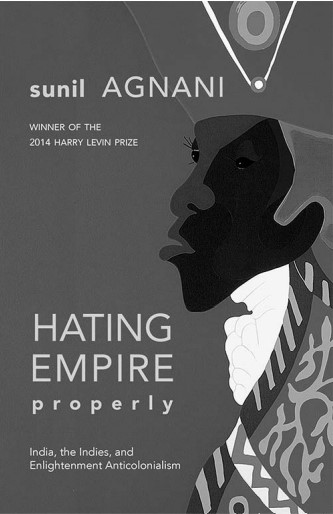What attitude does one assume towards empire? The book under review suggests in the very title that there is a proper way to hate it. This might also imply that the improper way of hating empire does not do the job well enough or does not go far enough. Among the multitude of arguments that this book deals with and in turn offers, the one that stands out with some degree of distinction is that the Enlightenment has ‘blackmailed’ individuals of especially the colonies by offering them the difficult alternative of either being on the side of progress and hence enlightenment; or contrary to this, putting them automatically on the side of all that is wrong with the colonized societies. Agnani’s book, like many other densely written academic works, cannot be considered the most accessible in terms of its meandering through a whole panoply of literary texts and historical sources that the argument winds through.
The design of the book itself with its first part focusing on the French philosopher Denis Diderot and the second part on the British parliamentarian and man of letters Edmund Burke, attempts to examine the chasm between the former’s emphasis on universalism and the latter’s emphasis on particularity. This chasm between universalism and particularity reveals how colonial reason has itself vacillated and oscillated between these two extremes. The nuance and complexity of Agnani’s argument arises from his dismissal of a number of simplistic polarities that have come to dominate discussion in the area. Thus, Burke is viewed either as a reactionary conservative or a sophisticated votary of the Enlightenment. The Enlightenment itself is dismissed as an irredeemably flawed colonial project of dominance or seen as the single most powerful emancipatory project that humankind has been capable of creating. The book’s stated aim in the prologue itself is the attempt to find inconsistencies in both Diderot and Burke. The purpose of finding these inconsistencies is then to hate empire properly.

